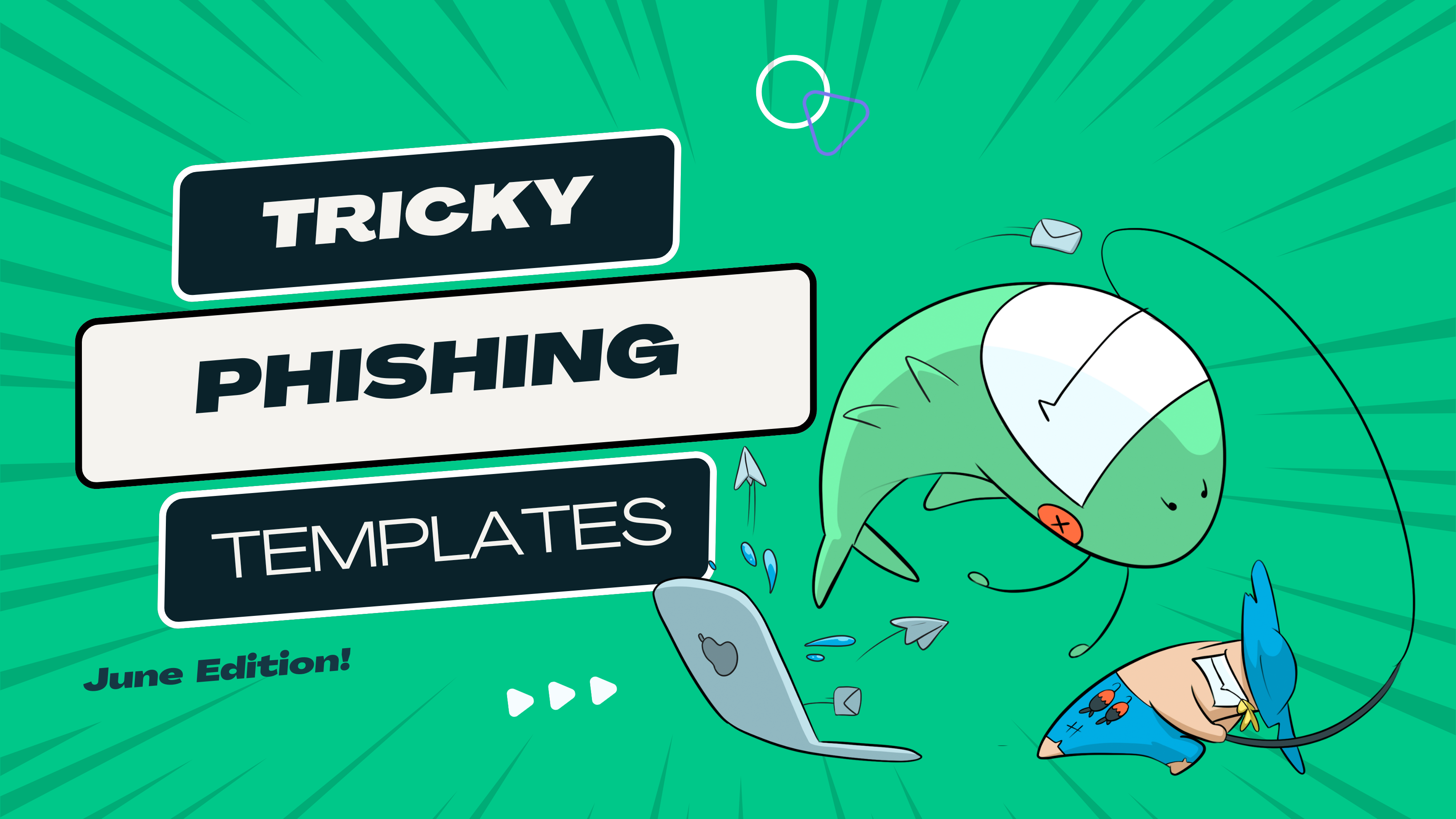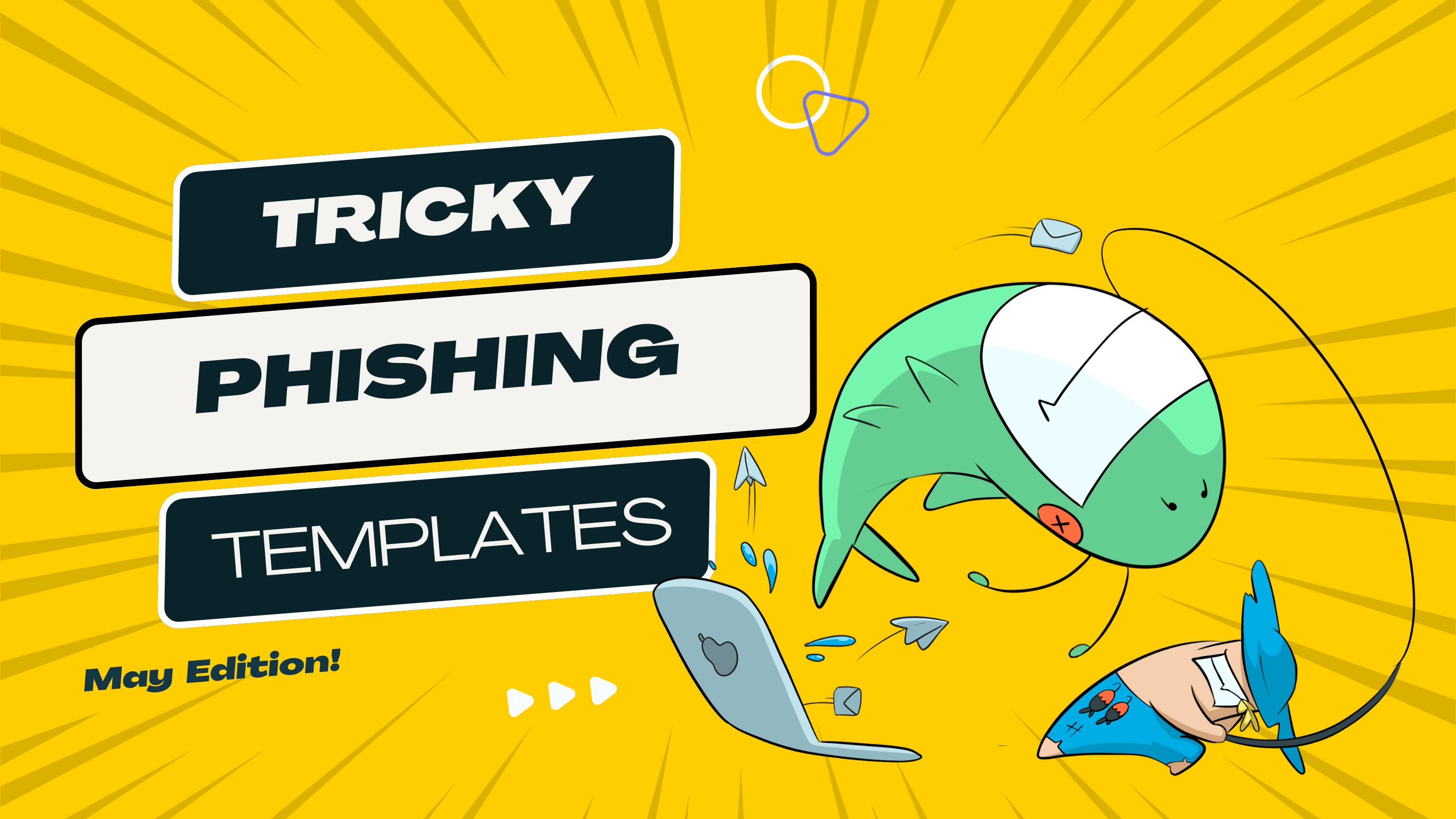Top 5 Must-Know Phishing Simulation Templates - August 2024
This month's phishing attack simulation templates showcase how scammers use common work scenarios – from payment problems to missed meeting notes – to trick us into clicking malicious links. Give your team knowledge to stay alert and outsmart the phishers.
Download these phishing templates for your in-person security awareness training materials!
Payment Pause
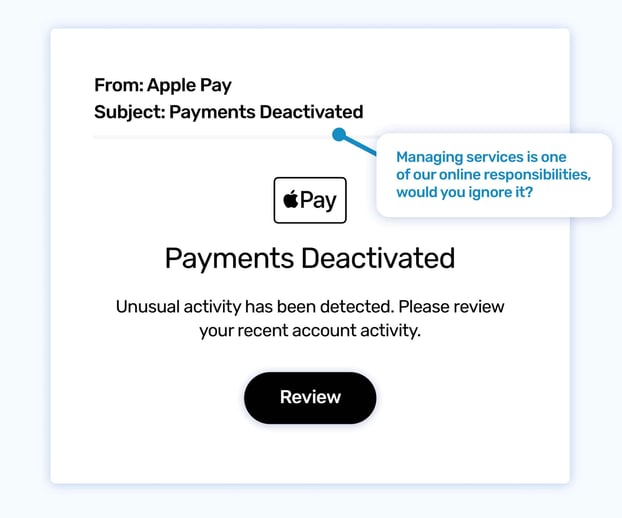
The sudden inability to make payments can trigger panic. This phishing simulation template capitalizes on that fear, urging you to click a malicious link to resolve the issue. The email claims your Apple Pay has been temporarily deactivated due to "unusual activity," creating a sense of urgency and concern. The "Review" button is likely linked to a malicious website that steals your login credentials or other sensitive information.
In the wild, this tactic could lead to identity theft, unauthorized purchases, or even complete account takeover. This simulation is a powerful reminder to verify account issues directly through the official app or website.
Device dilemma
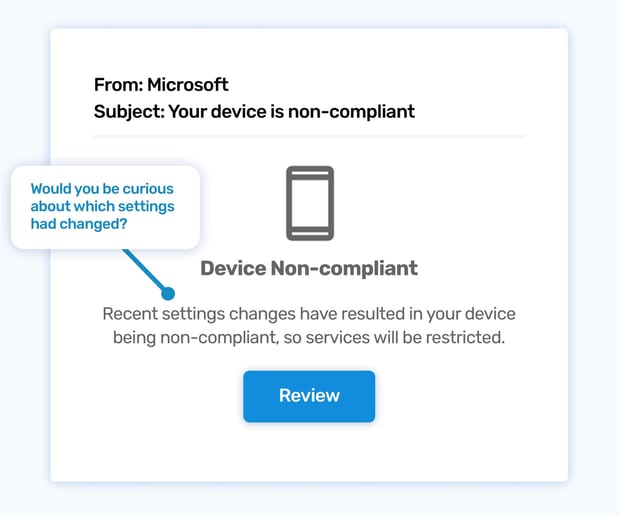
Tech troubles can be frustrating, especially when they disrupt your workflow. This phishing simulation template plays on that anxiety by notifying you of a "critical device error" requiring an immediate update. The email might mention issues with compatibility, security, or performance, creating a sense of urgency to fix the problem. The provided link, however, leads to a malicious website or download.
In the wild, this could result in the installation of malware, ransomware, or spyware, compromising your sensitive data and potentially granting hackers access to your entire system. This simulation underscores the importance of verifying any unexpected software updates through official channels before taking action.
Twisting the Fax
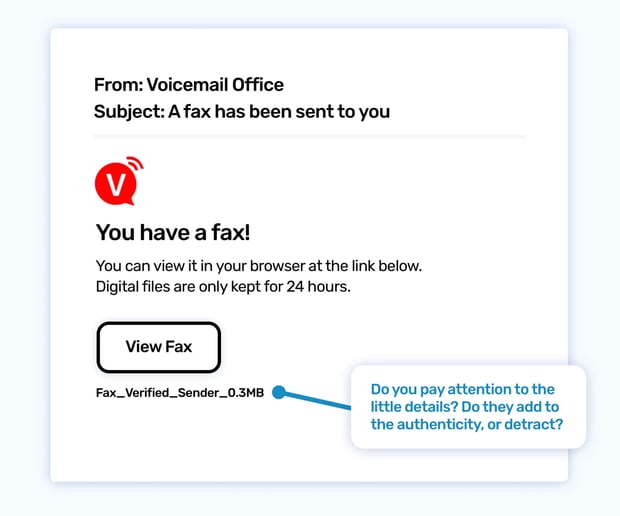
Even in our digital age, faxes still linger in some corners of the business world. This phishing simulation template uses that fact to its advantage, luring victims with a "missed fax" notification. The email might claim that an important document has been faxed to you and you need to click a link to view or download it. The attached "fax" is, of course, a trap leading to a malicious download or website.
Clicking on the link could expose your system to malware or lead you to a phishing site designed to steal your login credentials or personal information. This unexpected approach serves as a valuable reminder that phishers can exploit any communication method to catch us off guard.
Crafty Catchup
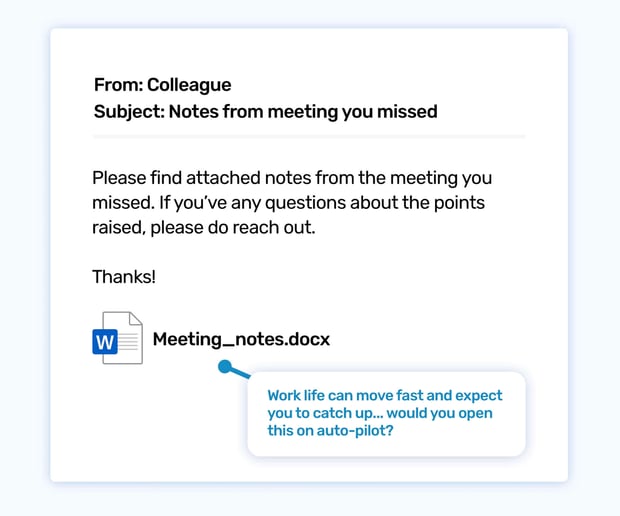
The dreaded "missed meeting" email. It's the digital equivalent of arriving late to a party and realizing everyone's already deep in conversation. The subject line screams urgency, and your heart sinks as you wonder, "What meeting? When was it? Why wasn't it on my calendar?" The email body, perhaps even containing a tantalizing snippet of the discussion, fuels your anxiety. The attached "meeting notes" seem like the lifeline you need to catch up and avoid embarrassment. But wait... is this a genuine oversight, or a clever phishing ploy?
The scammer's strategy here is distraction. They're banking on your internal monologue drowning out any alarm bells. The desire to quickly access those notes and fill the knowledge gap can override your usual caution. After all, who has time to second-guess a simple document download? But that's precisely the moment of vulnerability they're counting on.
This phishing simulation template serves as a stark reminder: even seemingly harmless scenarios can be weaponized by cybercriminals. Always verify any missed meeting notifications through official channels before clicking on any links or attachments.
Reporting Drill
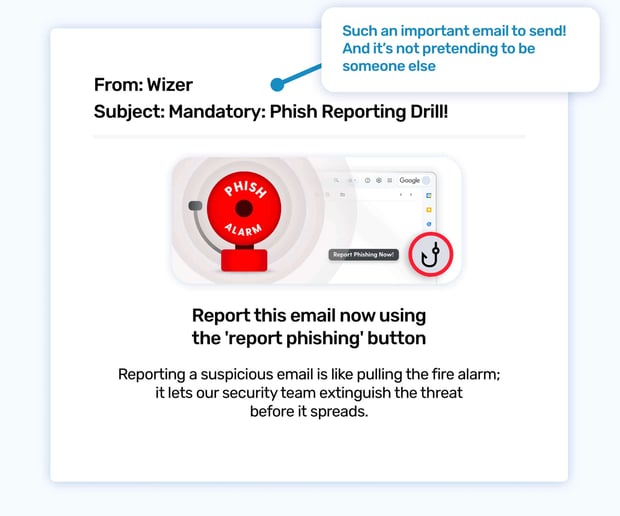
This template isn't about tricking your employees but empowering them. It's a deliberate drill, clearly labeled as such, that asks them to practice reporting a suspicious email. This reinforces the importance of recognizing and reporting potential threats, a critical step in preventing successful phishing attacks.
By practicing the reporting process in a safe environment, your team becomes an active part of your organization's defense against cybercrime. This simulation is an invaluable tool for building a security-conscious culture and ensuring that everyone knows how to respond effectively if they encounter a real phishing attempt.
Ready to launch your next phishing campaign? Register now for a free 10-day trial of Wizer Boost to explore all of Wizer’s Phishing Simulation Templates and Phishing Exercises.
That's it for this month's phishing template ideas - looking for more ideas for phishing templates? Check our blog for more examples of phishing templates.
- Interactive Phishing Response Game
- Short, Randomized Challenges
- Encourage Proactive Responses
- Go Beyond A Typical Simulation
.png)
